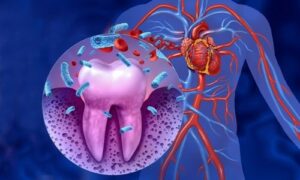Eating disorders such as anorexia, bulimia, and binge eating disorder are serious mental health conditions that affect millions of people worldwide. While these disorders primarily impact an individual’s physical and mental well-being, they also have significant and often overlooked effects on dental health.
1. Tooth Erosion
One of the most severe dental consequences of eating disorders, particularly bulimia, is tooth erosion. Bulimia involves recurrent episodes of binge eating followed by purging, often through self-induced vomiting. The stomach acid that comes into contact with the teeth during vomiting is highly corrosive and can erode the enamel, the protective outer layer of the teeth. Over time, this can lead to tooth sensitivity, decay, and even tooth loss.
2. Cavities and Tooth Decay
Eating disorders can lead to poor nutrition and inadequate intake of essential vitamins and minerals, which are crucial for maintaining healthy teeth and gums. Additionally, frequent vomiting and the consumption of sugary or acidic foods and drinks can increase the risk of cavities and tooth decay. The acidic environment created by vomiting can weaken the enamel, making it easier for bacteria to cause decay.
3. Gum Disease
Poor nutrition and inadequate oral hygiene, common among individuals with eating disorders, can contribute to gum disease. Without proper nutrients, the gums may become weak and more susceptible to infections. Early-stage gum disease, known as gingivitis, can progress to periodontitis if left untreated, leading to gum recession, bone loss, and eventually tooth loss.
4. Dry Mouth
Anorexia and bulimia can lead to dehydration, which reduces saliva production. Saliva is essential for neutralizing acids in the mouth, washing away food particles, and protecting teeth from decay. A dry mouth can increase the risk of cavities, gum disease, and bad breath.
5. Sensitive Teeth
Tooth erosion from frequent vomiting can expose the inner layers of the teeth, leading to increased sensitivity. This can make eating and drinking, especially hot or cold foods and beverages, uncomfortable or painful.
6. Swollen Salivary Glands
Repeated vomiting can cause the salivary glands to become swollen and tender. This condition, known as sialadenosis, can also result in a dry mouth, further exacerbating dental health issues.
7. Oral Sores and Lesions
Nutritional deficiencies, particularly of vitamins and minerals such as vitamin B, iron, and zinc, can lead to the development of oral sores, ulcers, and lesions. These can be painful and may increase the risk of infections.
Steps to Protect Dental Health
If you or someone you know is struggling with an eating disorder, it is essential to seek professional help from healthcare providers specializing in these conditions. In addition to psychological and medical treatment, consider the following steps to protect dental health:
- Rinse After Vomiting: Rinse your mouth with water or a fluoride mouthwash immediately after vomiting to neutralize the acid. Avoid brushing your teeth right away, as this can spread the acid and cause further enamel damage.
- Maintain Good Oral Hygiene: Brush your teeth at least twice a day with fluoride toothpaste and floss daily. Use a soft-bristled toothbrush to avoid further damaging the enamel.
- Stay Hydrated: Drink plenty of water to help maintain saliva flow and prevent dry mouth.
- Regular Dental Visits: Schedule regular check-ups with your dentist for professional cleanings and to monitor your oral health. Inform your dentist about your eating disorder so they can provide appropriate care and advice.
- Use Fluoride Treatments: Your dentist may recommend fluoride treatments or products to help strengthen your enamel and protect against decay.
Eating disorders have profound effects on dental health, but with the right care and support, these effects can be managed and mitigated. If you suspect you have an eating disorder, seek help immediately. Early intervention and a collaborative approach involving healthcare providers and dental professionals can help protect your oral and overall health. Remember, taking care of your mental and physical health is crucial for a healthy smile and a better quality of life.












